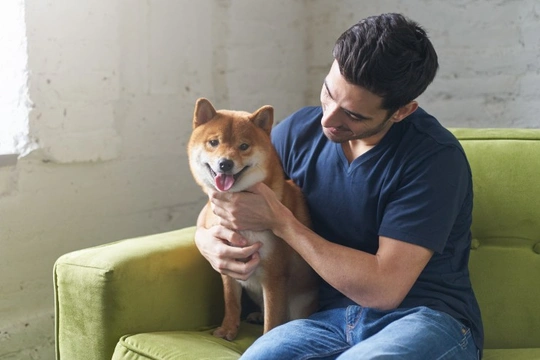
Why never leaving your dog alone is as bad as leaving them for too long
Leaving a dog alone at home for more than around four hours at a time is never a good thing, because this is about the upper limit for which you can reasonably expect your dog to be able to entertain themselves and remain happy before boredom, frustration and the need to do their business sets in.
This often means that people that work full time hours must rely on friends, family or a dog walking service to take their dog out in the middle of the day, and of course, that you have to be vigilant about making sure that you get home on time! On the other side of the coin, however, some dog owners who have retired or are otherwise at home for most of the day will pride themselves on never leaving their dog alone without company and supervision-and on the surface of it, this may seem like the best situation for the dog.
However, never leaving your dog alone and so, not getting them used to being happy with their own company and without constant supervision and entertainment can be just as bad as leaving your dog alone for too long-but for rather different reasons.
In this article, we will examine why never leaving your dog alone can be just as much of a problem as leaving them for too long at a time-and the type of problems that it can cause. Read on to learn more.
Puppies and adult dogs
When you first bring your new puppy home, there is an awful lot to do and think about! You will need to start teaching them the rules of the house, where to toilet, how to behave and of course, begin their training, and an integral part of this should involve getting them used to either being crated, confined to one room or left alone for a reasonable period of time too.
It is much easier to train a puppy in the way that you want them than it is to try to introduce a new lifestyle or change later on, but it can also be challenging, because puppies are so small and good at appearing helpless and needy!
Getting your puppy used to spending time alone is something that you should manage carefully-a bad experience early on can make things harder further down the line. It is also important to build up to the length of time that will be the top limit of how long your pup is left for, which can take time-simply expecting them to stay on their own for several hours at a time from the get-go is a recipe for disaster.
Adopting or buying an adult dog that has no prior experience of being left alone is much the same-work to gradually increase the length of time that you leave them for, and accept that the process may take some time.
Separation anxiety
A dog that has not learned to be happy on their own at times and that is not used to being away from their owner can easily develop separation anxiety when they do have to be alone, and it is a simple fact that all dogs will have to spend time alone at some point!
Whether this is due to the need for kennelling or an inpatient stay at the vets, a trip to the groomers, or because you have to go somewhere that dogs are not allowed, if being alone or away from the owner is necessary, a dog that is not used to this is unlikely to handle it well.
They are apt to become anxious and unsettled at being away from their owner or not having any other person or animal around to provide reassurance and company, and may well panic and make a big fuss by means of barking, howling or crying, and potentially, destroying things in an attempt to get attention or get out.
Never leaving your dog on their own will make them clingy and unused to having to face life and everyday occurrences without someone there to reassure them and give direction, which is unfair to your dog, and any other dogs or people that happen to be near enough to witness your dog’s distress and have to deal with it!
This is particularly likely to be a problem if your dog is in a veterinary clinic, a situation that simply cannot be avoided if your dog needs treatment, because their distress will not only potentially compromise their treatment or recovery, but because they will also upset the other animals in the clinic, and distract the veterinary staff too!
Whether you have a dog or a child, getting them used to being in their own company and not constantly needing stimulus and entertainment to be provided is vital to ensuring that they are not hard work when they must be alone, and is a key part of their development.
You cannot always have your dog by your side, and even if you are in the same house as them, there will be times when you cannot give them your full attention!
Getting them used to entertaining themselves and being able to relax and chill out when you are not concentrating on them leads to a happy, secure and well-balanced dog, who will be less likely to be anxious, demanding or unhappy when you cannot spend all of your time concentrating on them.



